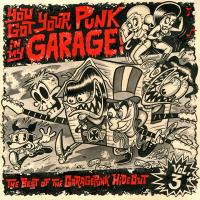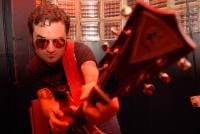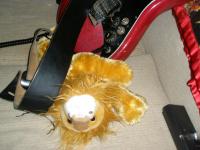 Untitled
Untitled
Started recording music about 15 years ago on my Tascam portastudio 4 track. Super primitive recordings with a cheap radio shack mixer and some yard sale microphones. Crazy loud in the red stuff that most speakers suffered to play. Nevertheless, the energy and simple songs made for an ok product. Since, these early recordings I have recorded music/records in all kinds of professional studios to basement dungeons. From Analog tape machines to DAT recordings, to strictly Digital recordings. Having some one else behind the board recording your music has many advantages and disadvantage. Less headaches of course, but certain aspects of the song may be lost in translation. Not every sound engineer will understand that you may actually want to sound like a scary mess of noise and chaos. I continued to record myself for song demos or riff ideas, and learned alot by watching others and asking a whole lot of annoying questions. I am by no means a sound engineer. I still consider myself a beginner that has a small grasp over spectrum of recording music. But, i sure have a lot of fun recording and saving my money to buy some better gear. And overall, the results are about the same from pro studios to my budget recordings---scary mess of noise....
I would really like some new ideas for recording trashy vocals. On many records I have used at 57, 58, or shure bullet direct into a guitar amp. Used all kinds of amps .... super high end tube amps to cheap pawn shop garbage. Super fuzz to moderate distortion. Typically I use this distorted track as a basis for additional vocal tracks and/or melodies. Clean vocals meshed with overdriven vocals. Most sound engineers producers frown upon this practice, but whatever. I love trashy vocals. And If the gain is not there on certain tracks, the vocal performance may sound dull and boring to my ear. Recently, i have used a universal audio LA610 to record vocals among other things. Sounds most excellent on bass. Highly recommend! Yet, I have a difficult time getting the gain---without digital clipping occurring. Have had very great results with the 610 on clean vocals using a Avantone CV-12 tube mic. Super rich. Anyways, what techniques do you use for vocals---trashy or clean? What kind of gear are you using? Thanks
 Untitled
Untitled






